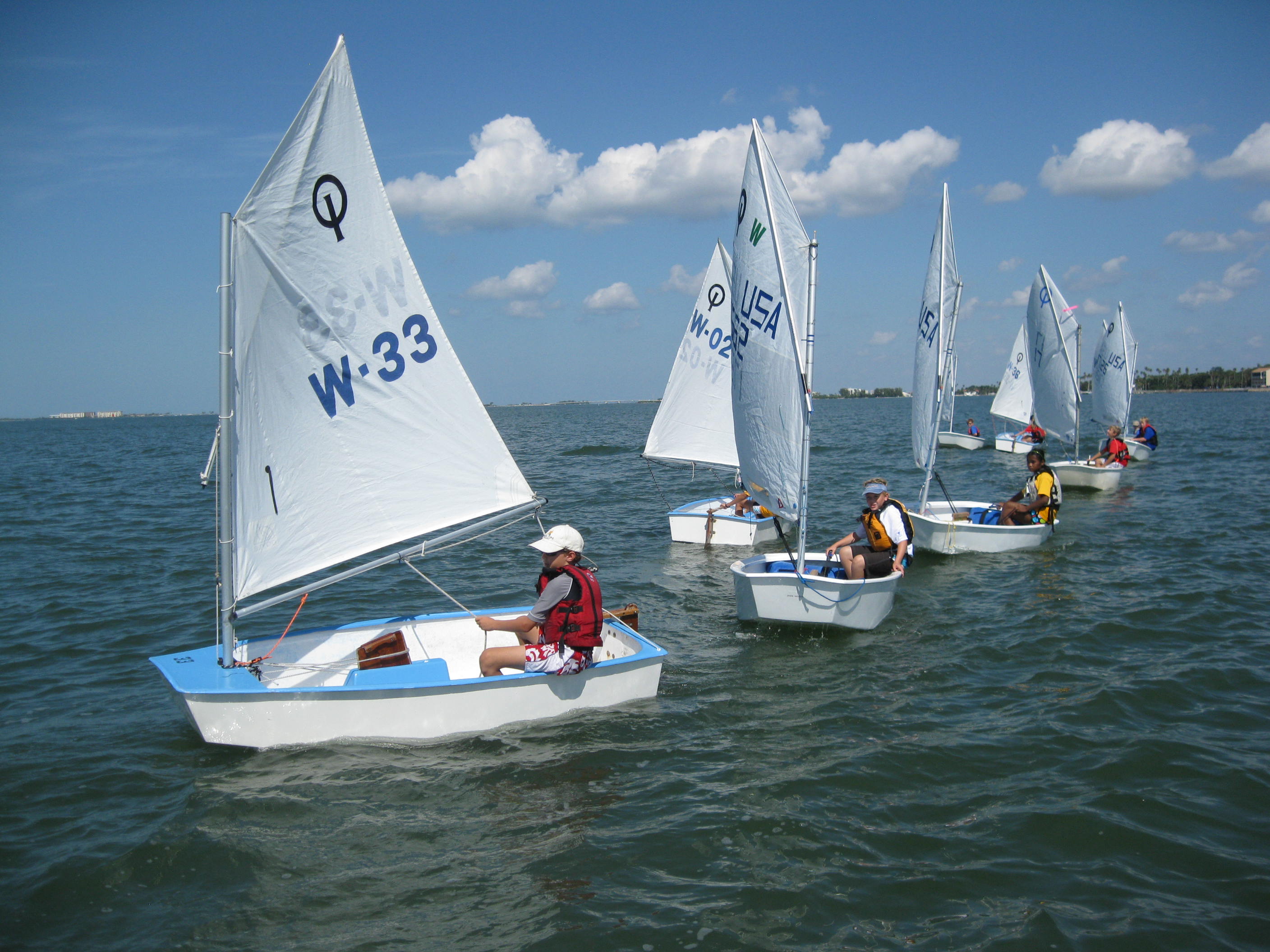
Youth Sailing Program


Information for parents
Registration paperworkOn the first day of the session, please print out the the following forms from the website, fill them in, and bring them with you.
ScheduleThe program starts at 8:30 am and runs to 4:30 pm, Monday to Friday. Please try to arrive by 8:30 am, so that the instructors can get started on rigging the boats to make full use of the morning breeze. Sign in/out proceduresParents of children under the age of 13 will need to sign the sailors in and out (at 4:30pm) each day at the desk in the Youth Sailing Building. Children ages 13 and older are permitted to sign themselves in and out each day. Please be punctual, but feel free to chat with the instructors. What to bringLunchChildren must provide their own lunch and any other snacks, as well as a beverage. Water will be supplied in the clubhouse, but please provide a labeled refillable Sunscreen protection
Please remind your sailors to reapply sunscreen after lunch, before the afternoon sailing.
ClothingWe like sailors to be properly outfitted so that they keep warm when it is windy and they are wet. We want everybody to be happy, cozy and warm.
Bad weatherThe instructors monitor the weather throughout the day using radar, and are constantly looking out for bad weather. If the wind is not too strong, classes will go sailing on rainy days. In the case of fog, strong winds, or heavy rain and thunderstorms, the final decision on whether or not the students sail will be made by the Head Instructor. Wind speed (or gusts), wave height, and air temperature are critical factors in determining if sailing will take place. If it is decided that it is unsafe to go out on the water, classes will be held on land. Every effort will be made to avoid having boats on the water during thunderstorms. and we will not go sailing if it appears that there is a storm approaching. Occasionally, storms pop up while we are sailing. In these cases, all classes will immediately clear the water. Sometimes, putting boats on a tow line and dropping sails will allow the most control in the increased winds that occur with sudden storms. A “ clear the water ” signal is established and understood by all instructors and sailors. The procedure is reviewed each Monday morning at the beginning of the session. The guidelines for responding to “clear the water” are as follows:
Cell Phone PolicyCell phone use (social media, email, texting, games) is strictly forbidden during the hours of 8:30am and 4:30pm.
| QuestionsGeneral questions: Questions about registration: InformationForms
|
